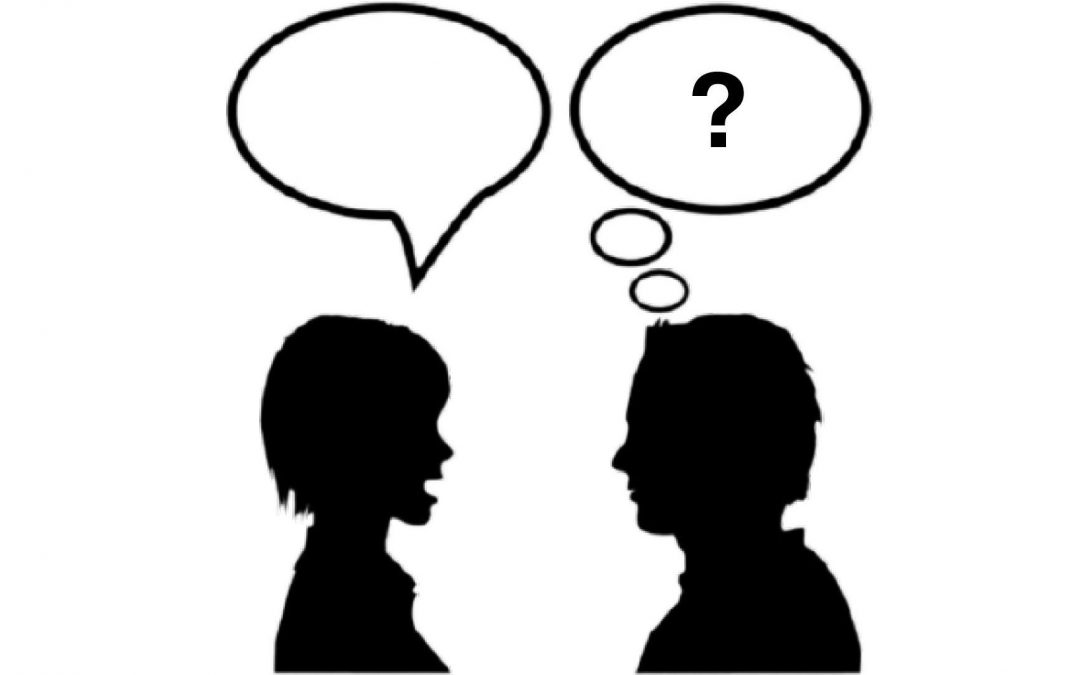Our friends at CNBC have joined our friends at Harvard Business Review (HBR) and our other friends in the nation’s capital to collaborate on The Great Infantilization. While our friends at CNBC and HBR are supposed to be educating us, or at least sharing meaningful information with us — and while our friends in the nation’s capital are supposed be representing us — all of them have decided they’d much rather tell us what to do. That, presumably, is how and why CNBC saw fit to publish this: “Want to sound more confident? Avoid these 11 words and phrases that make you look ‘weak,’ say grammar experts“.
This Granny State missive starts with a list of experts who purport to join CNBC in telling us what to do or, more specifically, in telling us what not to say in the workplace. To wit:
Here’s what psychologists, linguists, recruiters and CEOs say you should avoid using if you want to get ahead, along with simple replacements that will make a big difference in how you are perceived.
If you’re paying attention, you might notice that list of experts seems to be short one grammarian. And the psychologists, linguists, recruiters, and CEOs who allegedly dispensed this invaluable linguistic advice were evidently lacking a punctuation expert, too. Oh, well. For the record, here’s CNBC’s list:
- “Does that make sense?”
- “Maybe we should try …”
- “I think this would …”
- “I’m not positive but …” or “I’m not sure but …”
- “I just wanted to touch base …”
- “Needless to say …”
- “In my opinion …”
- “For what it’s worth …”
- “Sorry”
- “[X] was developed to increase [X].”
- “… if you know what I mean”
If you say any of that stuff, you’ll fit right in with everyone else in your organization who speaks in precisely the same hackneyed jargon. But all the rest of the purveyors of that hackneyed jargon will perceive you as weak. And they won’t, of course, think of themselves as weak. Got that? So far, so good.
Don’t Say These Things, Either
While your subscribing to the myriad experts’ lists of things you’re not supposed to say, in the workplace or anywhere else, here are a few others of which you might want to steer clear for fear of telegraphing the fact that you have a personality, a sense of humor or — worst of all — any shreds of sarcasm or cynicism. Sarcasm and cynicism are, of course, taboo in today’s enlightened and refined society. Canceling, censoring, shadow banning, and intimdating with threats against lives and livelihoods are perfectly acceptable modes of contemporary discourse. Snark, not so much.
Here’s the list:
- “How’s that grab ya?” (The folks who are most likely to take offense at this are the ones who don’t know the proper response is, “Low but legal.”)
- “How do you like them apples, Shirley?” (If people don’t realize the Shirley part is rhetorical, all manner of gender-dysphoric Hell may break loose.)
- “Capisce?” (Watch The Sopranos. They must say that in there somewhere.)
- “Are you riding my wave?” (While this one is old, it isn’t necessarily offensive. But this is 2021. People find reasons to take offense at everything.)
- “Do you catch my drift?” (See #4.)
- “Are you sure you finished kindergarten?” (This is intended to be a euphemistic alternative to, “What the hell are you, some kind of moron?” It may or may not work.)
- “You’ll be a great help to your mother someday.” (That was one of Grandpa O’Brien’s favorite expressions, delivered with his characteristic shit-eating grin. My guess is it won’t fly anymore.)
- “He’s a little too heavy for light work and a little to light for heavy work.” (That was one of my father’s favorite sayings. That one probably won’t fly anymore, either, especially if it’s true.)
- “Failure to plan on your part doesn’t constitute an emergency on my part.” (You shouldn’t be blamed for using this in almost any situation in which you’re being called on to bail people out of jams they should have seen coming. But you will be.)
- “You’ve apparently mistaken me for someone who gives a shit.” (See #9.)
- “Isn’t it pretty to think so.” (This is the last line in the Ernest Hemingway novel, The Sun Also Rises. You could use it in any situation in which your boss lays some set of circumstances on you, the bullshit nature of which is staggeringly evident. But you better have your next job lined up first.)
BONUS ENTRY: “So’s your Uncle Louie.” My father used to say this, too, in any number of circumstances: (1) “I want a raise.” “So’s your Uncle Louie.” (2) “I want this on my desk by Friday.” “So’s your Uncle Louie.” (3) “The boss says we all have to be vaccinated.” “So’s your Uncle Louie.” You get the idea. It’s an abject dismissal of all credibility on the order of Bugs Bunny’s famous, “What’s up, Doc?” Use it sparingly.
Be Careful Out There
Since our friends at CNBC and HBR, our other friends in the nation’s capital, and all others of their culture-controlling, language-dictating, trigger-seeking ilk appear to be driving, at least for the time being, watch what you say.
The firing squad you avoid may be your own.

